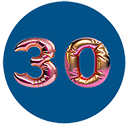The structure and organisation of the FSF
The Freiwillige Selbstkontrolle Fernsehen e.V. (German Association for Voluntary Self-Regulation of Television) is structured as a non-profit registered association financed by membership fees and earnings generated by the examination of broadcasts.
Members

Most of Germany's commercial television broadcasters are registered as affiliated members.
Board

The board of the FSF has seven members, who are elected for two years by the members’ assembly (members of the board may also be re-elected). The chair of the association and his or her deputy are elected by the board itself.
Board of trustees

Examinations at the FSF are supervised and monitored by a board of trustees. Its members are drawn above all from academia, culture or media education as well as and from institutions that deal with youth media protection issues. It is also possible for member broadcasters to delegate representatives to sit on the board of trustees, though these may not make up the majority of board members.
The board of trustees drew up the FSF Examination Rules and is responsible for their continuing development. These rules include the examination criteria and govern all issues relating to the examining procedure.
The functions of the board of trustees also include the selection and ongoing training of examiners and advising the board and the executive board in all matters relating to youth protection.
Examiners

Around 100 independent examiners from throughout Germany carry out evaluations for the FSF on a regular basis. The examinations take place in Berlin and examiners travel there a number of times every year. They are not paid for their evaluation work for the FSF, receiving only an expense allowance.
Every two years, the board of trustees reviews the selection. Up to five nominations apiece are contributed by the Evangelical Church and the Catholic Church.
A few examiners work full-time, collaborating closely with the board of trustees, the aim being for their regular participation in the examination of programmes to help provide unity in the decision-making practice of the examining bodies.
Most examiners work in contexts that call for expert knowledge with regard to media, the development of children and adolescents and/or education. Others work freelance in journalistic or artistic contexts. Many FSF examiners are also involved in the bodies of the Freiwillige Selbstkontrolle der Filmwirtschaft (German Association for Voluntary Self-Regulation of the Film Industry, FSK).
Office

The FSF office in Berlin serves as an interface between broadcasters, examiners, the bodies of the FSF and the public. This is where programmes are examined. It is also home to the editorial team of the trade journal mediendiskurs and is where we conduct our youth media protection training activities. Skilled media education personnel provide information events and prepare materials on dealing with the media.
FSF office and staff


